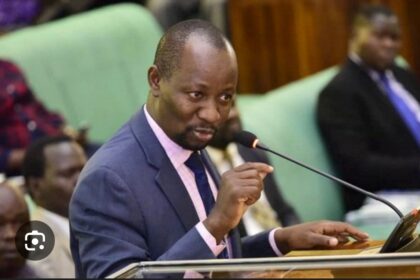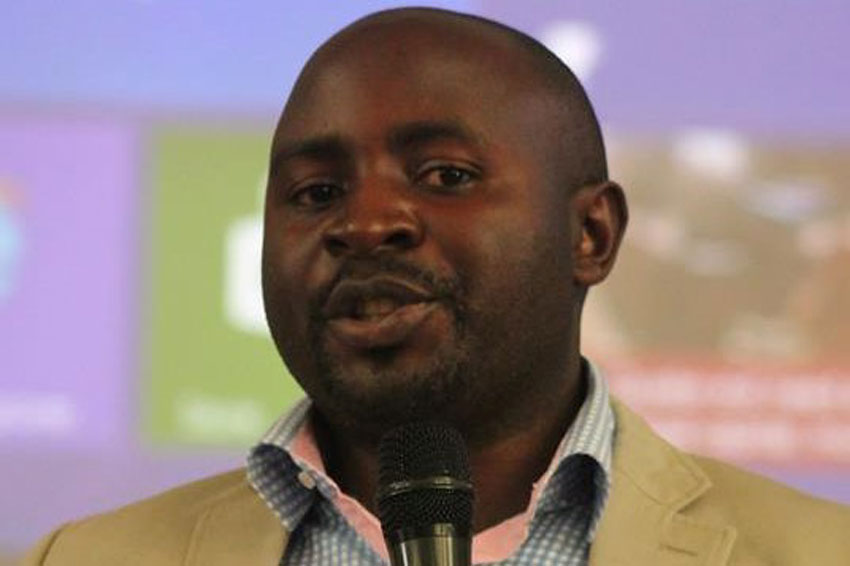By Sharon Tshipa
With the implementation of the Paris Agreement set to begin next year, Botswana’s commitment to the United Nations Framework Convention on Climate Change has been questioned, as several initiatives that were set up in an attempt to mitigate and adapt are failing.
“We are not producing enough gas as a country. We have projects that have since failed that could be helping with mitigation and adaptation. Where is the Botswana Power Corporation Lesedi project? Where is the Sekhutlane Biogas Plant? Where are the solar heating systems in public servant’s houses? They are all gone,” decried Obuile Morewane, an Energy Systems Engineer, and Chairperson of the Green Energy and Sustainability Association (GESA).
Morewane finds it disturbing that Botswana is still investing in acquiring more electricity and petroleum fuels while the country could be investing in renewable energy that reduces greenhouse gases. What bothers him is that heatwaves and other effects of climate change have been ravaging Botswana for a while now, but the country seems to lack the sense of urgency to ensure that all projects started with the endeavour to mitigate and adapt are functional.
“I will give you an example of the Phakalane 1.3 MW Solar Plant that was built by the Japanese government. The Botswana government agreed to it because it was financed fully by Japan, not because it sees solar energy as a climate mitigation tool,” he asserted. “Today, the plant is only giving out 0.7 MW. Its panels are dusty and vegetation has covered the panels,” he explained. If Botswana was truly concerned about its citizens’ wellbeing, Morewane believes it would have ensured that the plant for one is running with a storage facility that would guarantee its performance. Given the neglect, like most African countries, he said Botswana is acting like it signed protocols and agreements without a clear understanding of why, which is why it is failing to implement them.
“You will find an agreement saying this and government policies saying something else. There are no initiatives than can live up to the terms of the agreements. Take the Paris Agreement for example, we are talking about reducing emissions but we lack the strategy to address the how part,” said Morewane, adding that “African countries who get aid and financial assistance from developed countries are just signing agreements to be seen to be playing a role in pertinent global issues.”
Climate change effects
The effects of climate change on Botswana have been devastating. In summer, it has become common for citizens to receive communication from the Department of Meteorological Services warning them of impending heatwaves that last a week to two. On November 13, 2018, people were cautioned about the current heatwave. The warning came with the advice to drink more water regardless of activity, to avoid prolonged exposure to the sun – if possible staying under the shade, and to protect oneself by wearing a wide-brimmed hat or carrying an umbrella.
“Heatwaves contribute to diseases such as skin cancer, impaired vision and malaria – as areas which used to be too cold for mosquitos to breed, have now become warm enough for multiplication. Malnutrition and increasing food costs are also a direct impact linked to heatwaves –especially affecting rural dwellers,” said Obuile Morewane.
Other than direct impacts on human beings, heat waves are also attributed to Botswana’s agricultural industry failure. Speaking during the High Level Breakfast Meeting held on November 20 in Preparation for COP24, Thato Raphaka, the Permanent Secretary of the Ministry of Environment, Natural Resources Conservation and Tourism, said an estimated 500,000 livestock deaths and over 30,000 people in Botswana were left vulnerable to the impacts of droughts experienced between 2014 and 2017. In the last decade, he said climate change has led to about 2.5 trillion U.S. dollars in disaster losses in developing countries resulting in the number of people affected by natural disasters doubling from 102 million in 2015 to 204 million in 2017. Southern Africa was not spared, the number of food insecure populations Raphaka said is at 27 million because the region suffered the worst drought in 35 years caused by the El Nino phenomenon.
Climate change research
Botswana’s wildlife species are not immune to these recurring climate issues. New research from the University of East Anglia, published on November 13, 2018 in a journal called Nature Communication, reveals that heatwaves damage sperm in insects – with negative impacts for fertility across generations. The research team purports that male infertility during heatwaves could help to explain why climate change is having such an impact on species populations, including climate-related extinctions in recent years.
Matt Gage, the research group leader was recently quoted by Science Daily saying, “Heatwaves are particularly damaging extreme weather events. Local extinctions are known to occur when temperature changes become too intense. We wanted to know why this happens. And one answer could be related to sperm.”
According to Science Daily, the research team investigated the red flour beetle (Tribolium castaneum) to explore the effects of simulated heatwaves on male reproduction. The beetles were exposed to either standard control conditions or five-day heatwave temperatures, which were 5 to 7 degrees Celsius above their thermal optimum. Afterwards, a variety of experiments assessed the potential damage to reproductive success, sperm function and offspring quality. The team found that heatwaves halved the amount of offspring males could produce, and a second heatwave almost sterilised males.
Females, by contrast, were unaffected by heatwave conditions. However, female reproduction was affected indirectly because experiments showed that heatwaves damaged inseminated sperm within female reproductive tracts. After experimental heatwaves, males reduced sperm production by three-quarters, and any sperm produced then struggled to migrate into the female tract and were more likely to die before fertilization.
For the Botswana government to win the fight against climate change, Tracy Sonny, Chairperson of the Botswana Climate Change Network said research has to be carried out to assess the impacts of heatwaves, and climate change in general on local communities, and their biodiversity. Finance, clear policies and strategies she said are necessary for success. The Botswana government, she said, has not completely done nothing. “National government efforts have included raising awareness, capacity building on climate change, and regular basic mobile notification tips on surviving the current weather,” she said.
With its intended nationally determined contributions (NDCs), Botswana intends to do more as it has vouched to achieve an overall emissions reduction of 15 percent by 2030, taking 2010 as a base year, among other commitments such as developing a National Adaptation Plan and Action Plan. Other efforts have been witnessed in the water sector – construction of pipelines and connection to existing ones to transmit water to demand centres –, and the health sector – with the control of diarrhoeal diseases.
To stay driven, Botswana is currently looking forward to the Conference of Parties (COP24) scheduled for December in Katowice, Poland, where it intends to communicate its Paris Agreement position. Botswana’s demands are not too divorced from those of other UNFCCC signatories.
A brief interview with Jesse Bragg, the Media Director of Corporate Accountability – one of the partner organisations of the People’s Climate Demands, revealed that all people need support in ecological restoration to recover natural sinks, and stop all projects that are extremely destructive of Earth’s natural capacity to absorb greenhouse gases. Nevertheless, Bragg said everything comes down to finance and technology, as the two are what bridges the gap for people feeling the most extreme impacts of climate change now. “In terms of heat waves, they can help ease the impacts and provide the means for adapting to them. Many of the demands will help in the long term but finance and technology will help now,” Jesse Bragg emphasised.
Do you have a story in your community or an opinion to share with us: Email us at Submit an Article






